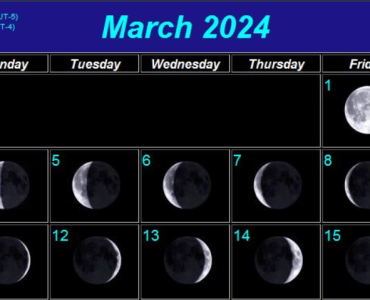As real believers, that is, the people who have submitted themselves to God’s laws, we must perform all the commands of God basically because He has ordered so. The physical, mental, and spiritual benefits we obtain from various types of worship are benefits we will acquire in addition to the fulfillment of our responsibilities towards God.
Fasting is a type of worship with various benefits, and it is known by all communities who were granted divine Scriptures. The Quran also includes commandments about fasting. This is because the Quran attests confirmation to previous divine scriptures, and preserves, and alleviates some of the rulings in them:
“This (The Quran) is not a fabricated narrative but a confirmation of what is before It and the detailed explanation of all things. It is a guide and a mercy to a people who believe.” (The Quran 12:111)
Let us learn the well-known verses of God about fasting in previous divine scriptures and the Quran, and then review its benefits:
FASTING IN THE TANAKH
“Mark, the tenth day of this seventh month is the Day of Atonement. It shall be a sacred occasion for you: you shall afflict your souls, and you shall bring an offering by fire to the Lord.” (Leviticus 23:27)
The affliction of the soul is the opposite of its delight[1]. Therefore it is abstention from eating, drinking, and sexual relations, as well as a way of understanding the conditions of the needy, the oppressed and any other afflicted people, thus finding ways to help them:
“Is not this the kind of fasting I have chosen: to loosen the chains of injustice and untie the cords of the yoke, to set the oppressed free and break every yoke? Is it not to share your food with the hungry and to provide the poor wanderer with shelter— when you see the naked, to clothe them, and not to turn away from your own flesh and blood? Then your light will break forth like the dawn, and your healing will quickly appear; then your righteousness will go before you, and the glory of the Lord will be your rear guard. Then you will call, and the Lord will answer; you will cry for help, and he will say: Here am I.” (Isaiah 58:6-9)
FASTING IN THE GOSPEL
The following verses in the Gospel attract attention to people’s intentions while fasting. Fasting in order to show off is prohibited, as it is while performing any other worship:
“When you fast, do not look somber as the hypocrites do, for they disfigure their faces to show others they are fasting. Truly I tell you, they have received their reward in full. But when you fast, put oil on your head and wash your face, so that it will not be obvious to others that you are fasting, but only to your Father, who is unseen; and your Father, who sees what is done in secret, will reward you.” (Matthew 6/16-18)
FASTING IN THE QUR’AN
Fasting is described in the Quran as a type of worship known and performed by previous People of the Book, but the conditions to fulfill during fasting are alleviated in the Quran:
“Oh, you who believe and trust in God! Fasting has been prescribed for you in the way that was prescribed for the ones before you, so that you may protect yourselves. Fast on the consecutive days. Whoever among you does not fast on those days because you are sick or on a journey, then (you should fast) the same number of days on other days. Those who are able to fast are also required to pay a fee (which is equivalent to the cost) of feeding a desperate person. Whoever volunteers to do more than good, it is better for them. If only you knew how good it is for you to fast, you would (fast even when sick or traveling). The consecutive days are the month of Ramadan when the Quran was sent down, that Criterion, which is a guide for humankind and which also includes the explanatory verses of that guide. So, whoever among you witnesses that month must spend it fasting. Whoever is sick or on a journey may fast for the same number of days on other days. God desires ease for you. He does not desire difficulty. These eases are in order that you complete the number of days and (at the end of fasting) you glorify God for guiding you to this and that you fulfill your duties towards Him. … It has been made lawful for you to be intimate with your wives on the nights of fasting. They are a garment for you, and you are a garment for them. God has known that you were betraying yourselves, and He has welcomed your turnaround and pardoned you. Now (you are permitted to) be with them. Seek what God will prescribe for you. Eat and drink until the white streak (of light) in the direction of dawn is clearly distinguishable from the black streak (of land in that direction) for you. Then, complete the fast till nightfall. Do not have intercourse with your wives while you continue to seclude yourselves in the places of prostration to God. These are the bounds set by God; do not approach them! Thus God explains His verses to humankind, so that they may refrain from doing wrong.” (The Quran 2:183-185,187)
Being intimate with the spouse during the nights of fasting and eating-drinking till the dawn are alleviations brought during the revelation of the Quran. Except for these alleviations, fasting is the same as it was commanded in previous Divine Books. All the conditions regarding fasting are named “bounds set by God”. We mustn’t overstep them, rather, not even approach them. This is for our own good.
HEALTH BENEFITS OF FASTING
The researchers combed through dozens of animal and human studies to explain how simple fasting improves metabolism, lowers blood sugar; lessens inflammation, which improves a range of health issues from arthritic pain to asthma; and even helps clear out toxins and damaged cells, which lowers risk for cancer and enhances brain function[2].
When we consider these newly discovered health benefits, we can understand the following statement in the Quran much better: “If only you knew how good it is for you to fast, you would (fast even when sick or traveling).”
SPIRITUAL BENEFITS OF FASTING
As we can also understand from the Tanakh, the fasting that God commands is not abstention from eating, drinking, or intercourse only. It is a way of re-considering social relations, helping the needy, and refraining from any bad deeds.
Prophet Muhammad (pbuh) advised “fasting” to young people who feared to fall into certain sins because fasting helps to regain self-control and self-reliance. There are famous narrations (hadith) from him which emphasize the spiritual aspects of fasting:
“Fasting is a shield. So when one of you is fasting, he should neither indulge in obscene language nor should he raise his voice in anger. If someone attacks him or insults him, let him say: ‘I am fasting!’ (Bukhari, Sawm,9)”
“Whoever does not give up false speech and evil actions (should know that), God is not in need of his leaving his food and drink (Bukhari, Sawm,15).”
[1] https://www.health.harvard.edu/blog/intermittent-fasting-surprising-update-2018062914156
[2] https://www.sefaria.org/Leviticus.16.29?lang=bi&with=Ibn%20Ezra&lang2=en








Add comment